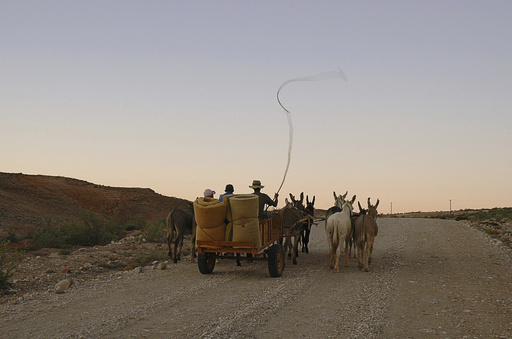
CAPE TOWN, South Africa — In a decisive move, U.S. President Donald Trump enacted an executive order on Friday, terminating all aid to South Africa, citing what he termed a violation of human rights against a minority group, specifically the white Afrikaners. This action comes in response to South Africa’s recent land expropriation law, which the Trump administration claims is overtly discriminatory against this minority that descends from European colonial settlers.
The administration alleges that the South African government has been complicit in allowing violent incidents against Afrikaner farming communities. It has also accused the nation of endorsing hostile entities globally, including the militant group Hamas, alongside countries like Russia and Iran.
The subject of land distribution in South Africa has been contentious for over three decades—stemming from the end of apartheid in 1994—due to its deep racial implications. The issue has garnered international attention, particularly following criticism of the South African government’s policies by Trump and his adviser Elon Musk, who have both claimed that these policies are anti-white, often propagating misleading narratives.
What exactly does the Expropriation Act entail? This new statute allows the South African government to expropriate land under specific conditions and only when it serves the public interest. Trump referenced this law when he announced his intent to eliminate funding to South Africa. He claimed that the government was engaging in “terrible things” by seizing land from certain demographics—a statement that has been contested and deemed false even by local groups challenging the law. The South African administration maintains that property rights are protected and perceives Trump’s remarks as filled with misinformation.
Nonetheless, the law has raised alarms among certain factions of the white minority, prompting concerns that it may target them, despite the absence of explicit racial references in the legislation. This law is part of broader efforts to rectify historical injustices linked to the apartheid system and previous colonial practices. Under apartheid, Black South Africans were stripped of their land and compelled to reside in designated non-white areas. Presently, while whites constitute about 7% of the 62 million population, they still hold approximately 70% of private agricultural land—a disparity that the government argues requires rectification.
Who precisely are the Afrikaners? They are a group of white South Africans primarily descended from Dutch settlers who arrived approximately 370 years ago. Speaking Afrikaans, which is one of South Africa’s eleven official languages, Afrikaners include many members of the nation’s rural agricultural populations. Historically, they played a central role in the apartheid system, and while some tensions remain with Black political factions, reconciliation has largely succeeded in the post-apartheid era. Many Afrikaners have integrated into the ethos of the new South Africa, with notable figures like UFC fighter Dricus du Plessis, golfers Ernie Els and Louis Oosthuizen, and actress Charlize Theron gaining international recognition.
According to Trump’s administration, the executive order addresses serious human rights breaches in South Africa, claiming that violent attacks on Afrikaner farmers and their families have been allowed to occur. Furthermore, Trump announced plans to facilitate the resettlement of white South African farmers and their families as refugees.
Elon Musk, the billionaire CEO of Tesla, has also weighed in on the situation. Born and raised in South Africa, Musk left in the late 1980s amid apartheid. He has long criticized the current South African leadership, accusing them of anti-white legislation and, more recently, of perpetuating a “genocide” regarding the killings of certain white farmers. The South African government refutes these assertions, characterizing the killings as a part of the nation’s overall high crime rates rather than a racially motivated campaign. Data from an organization tracking farm attacks indicates that 49 farmers were killed this year amidst a staggering 27,000 total homicides across the country.
Musk has further criticized South Africa’s “racist ownership laws,” pointing to his inability to secure licensing for his Starlink Internet service, which allegedly does not align with affirmative action standards.
Trump’s executive order is set to cut off hundreds of millions of dollars in aid that previously supported various initiatives in South Africa, including efforts against HIV/AIDS. In 2023, the U.S. contributed around $440 million to South Africa, covering 17% of the nation’s HIV program through the President’s Emergency Plan for AIDS Relief. With this funding halted, the South African health sector could suffer a significant setback, especially as the country battles a high number of people living with HIV, with around 5.5 million currently under treatment.
The executive order also accuses South Africa of adopting an anti-American stance and fostering ties with entities like Hamas, Russia, Iran, and China. Historically, South Africa has been a proponent of Palestinian interests and has maintained relations with Russia stemming from support during anti-apartheid struggles. Trump’s order could necessitate a substantial change in South Africa’s foreign policy before any aid can resume.

